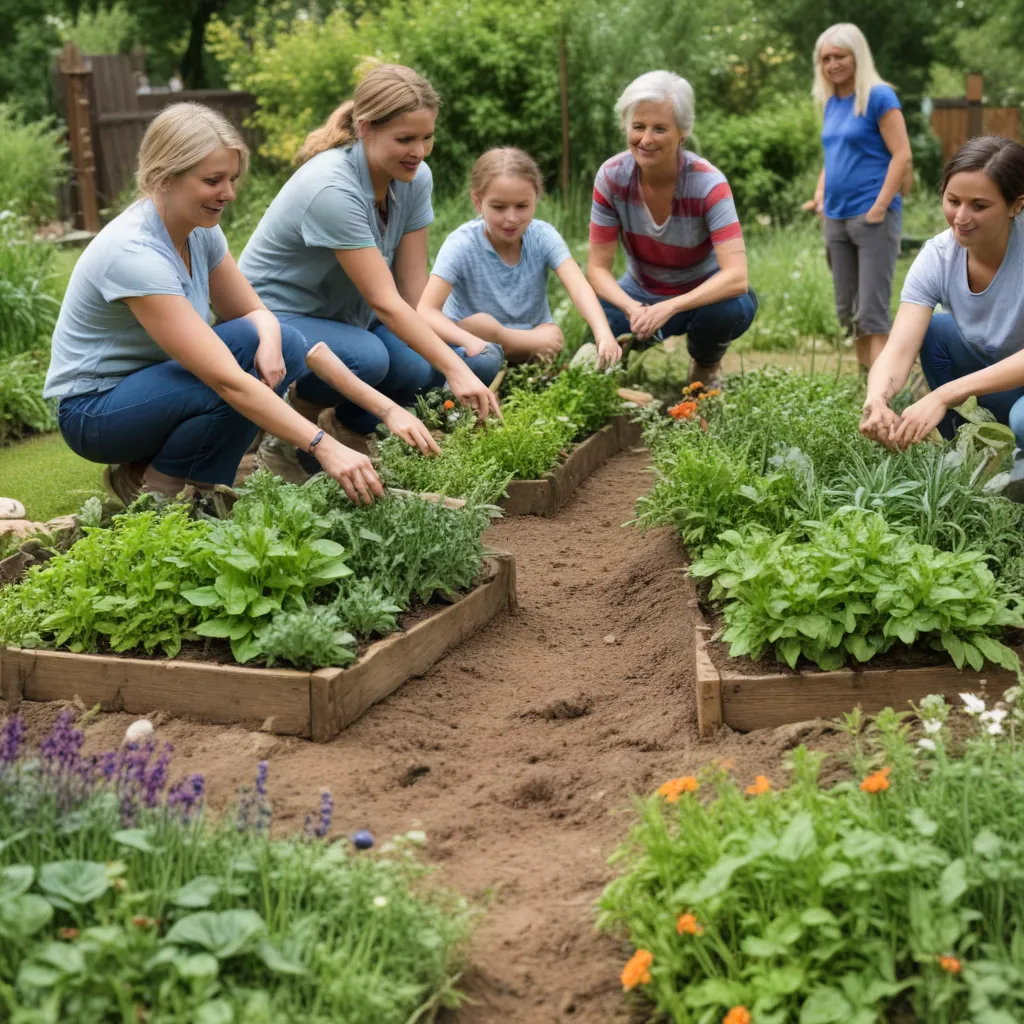
In a world increasingly consumed by digital connections, the physical garden has emerged as a vital space for fostering genuine community engagement and well-being. At the Wine Garden Inn, we believe that the garden is not merely a place for growing produce, but a nexus where relationships flourish, minds find respite, and the rhythms of nature inspire a deeper sense of belonging.
The Transformative Power of Gardens
The act of cultivating a garden is a fundamentally human experience, one that transcends cultural and socioeconomic boundaries. As noted by the team at Cultivating Community, community gardens can yield an average of 20.4 servings of fresh produce per 11 square feet, while also lowering household food security concerns by up to 90%. These verdant oases not only nourish the body, but also the spirit, fostering a deep connection to the land and a renewed appreciation for the cycles of growth and renewal.
At the Wine Garden Inn, our own garden serves as a living testament to this transformative power. Here, guests can immerse themselves in the tactile experience of tending to the soil, watching seeds sprout into vibrant flora, and savoring the flavors of estate-grown herbs and vegetables. This shared journey of cultivation not only introduces guests to the origins of their food but also sparks meaningful conversations and the forging of new bonds.
The Social Dynamics of Communal Spaces
Beyond the individual experience, community gardens have the remarkable ability to bring people together, transcending social, cultural, and generational divides. As highlighted by the Holy Cross Health Greenhouse and Community Garden project in Germantown, Maryland, these shared green spaces can serve as hubs of activity, fostering connections, promoting wellness, and empowering people to take control of their health and nutrition.
At the Wine Garden Inn, we have witnessed firsthand the social dynamism that emerges within our garden. Guests from diverse backgrounds gather to swap gardening tips, share recipes, and engage in lively discussions about the local ecosystem and sustainable practices. These interactions not only nourish the body but also cultivate a sense of community, where strangers become neighbors and shared experiences blossom into lasting friendships.
Cultivating Connections through Shared Experiences
The power of the garden to foster community extends far beyond its physical boundaries. As recounted by the team at Cultivating Community, community gardens can serve as a catalyst for deeper self-expression and the sharing of personal narratives. In these verdant spaces, individuals find a safe haven to explore their creativity, whether through artistic pursuits, storytelling, or simply the act of tending to their plot with care and intention.
At the Wine Garden Inn, we have witnessed the transformative power of these shared experiences. Guests who may have initially come to our property solely for the wine have found themselves drawn into the garden, captivated by the opportunity to engage with the land and one another. From impromptu cooking demonstrations to garden-inspired art projects, these collaborative experiences have become a cherished aspect of the Wine Garden Inn experience, fostering a deep sense of community that extends far beyond the confines of our property.
Fostering Inclusive Engagement
The true power of the community garden lies in its ability to create accessible and welcoming environments that cater to diverse perspectives and needs. As exemplified by the Holy Cross Health Greenhouse and Community Garden project, these spaces have the potential to address pressing issues, such as food insecurity, by providing families and community members with reliable access to nutritious produce.
At the Wine Garden Inn, we have made a concerted effort to ensure that our garden is a space that is inclusive and empowering for all. Through partnerships with local organizations and the implementation of educational programs, we strive to create opportunities for individuals of all backgrounds to engage with the land, learn about sustainable food production, and cultivate a sense of ownership and control over their local food sources.
The Therapeutic Benefits of Gardening
Beyond the social and nutritional benefits, the act of gardening itself has been widely recognized for its profound therapeutic effects. As noted by the team at Cultivating Community, community gardeners consume 37.5% more fruits and vegetables than non-gardeners, underscoring the crucial role these green spaces play in promoting physical and mental well-being.
At the Wine Garden Inn, we have witnessed the restorative power of the garden firsthand. Guests who have found solace in tending to the soil, watching their seedlings flourish, and breathing in the earthy aromas have reported a marked improvement in their overall sense of calm and mindfulness. The garden, with its ability to ground us in the present moment and connect us to the rhythms of nature, has become a sanctuary for rest, reflection, and personal growth.
The Ecological Impact of Community Gardens
The benefits of community gardens extend far beyond the individual and social realms, reaching into the realm of environmental sustainability. As highlighted by the team at Cultivating Community, these verdant spaces serve as hubs for sustainable food production, enhancing urban greenspaces, and fostering biodiversity conservation.
At the Wine Garden Inn, our garden is not merely a source of fresh produce but also a testament to our commitment to environmental stewardship. By implementing biodynamic farming practices, utilizing compost to enrich the soil, and championing the preservation of native plant species, we strive to create a harmonious ecosystem that benefits both the land and the community that it serves.
As we reflect on the transformative power of the garden, we are reminded of the profound impact that these shared green spaces can have on our lives and the world around us. At the Wine Garden Inn, we invite you to join us on this journey of community cultivation, where the seeds of connection, wellness, and environmental stewardship are sown, one garden at a time.
